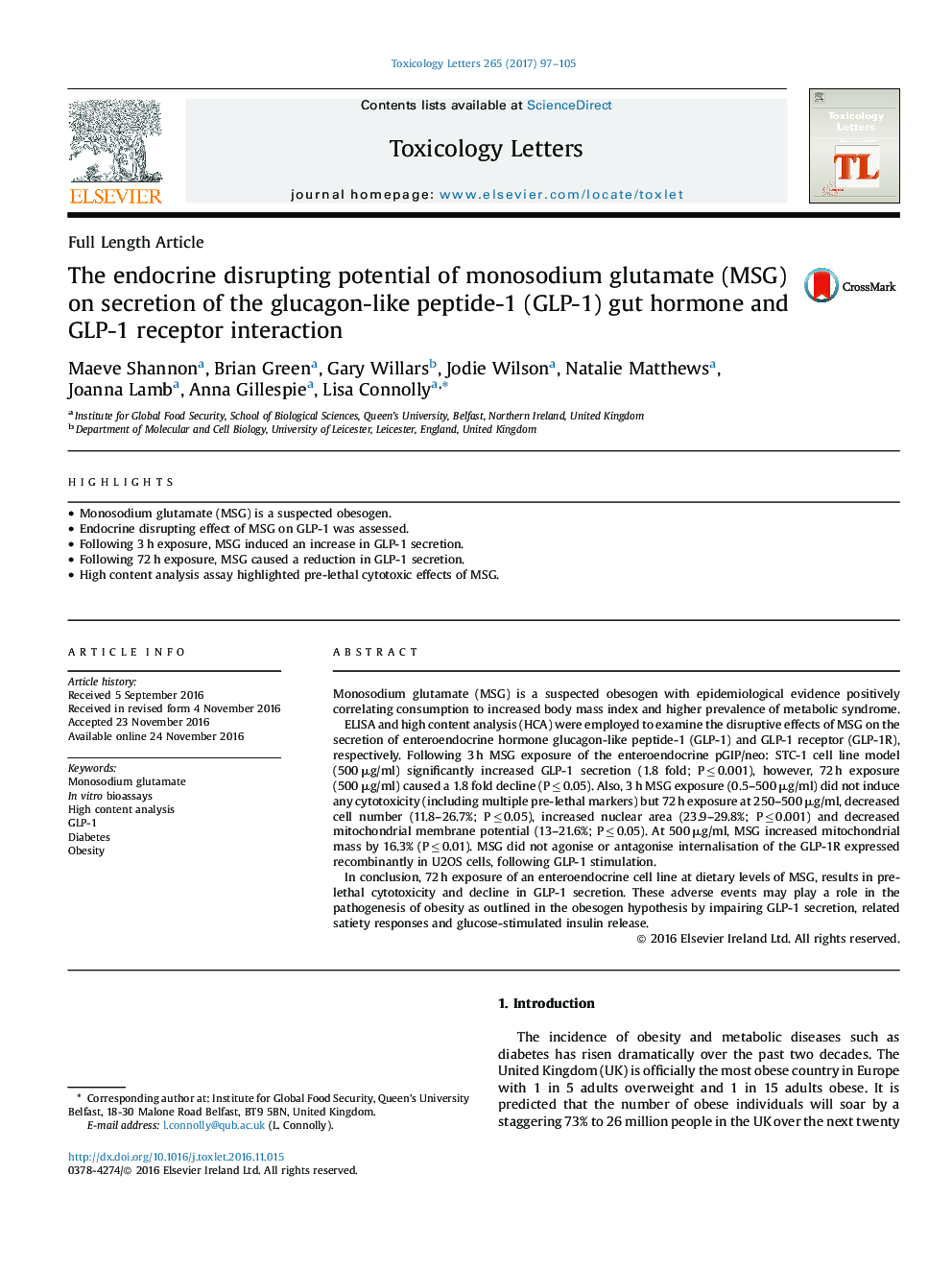| کد مقاله | کد نشریه | سال انتشار | مقاله انگلیسی | نسخه تمام متن |
|---|---|---|---|---|
| 5562260 | 1562608 | 2017 | 9 صفحه PDF | دانلود رایگان |

- Monosodium glutamate (MSG) is a suspected obesogen.
- Endocrine disrupting effect of MSG on GLP-1 was assessed.
- Following 3Â h exposure, MSG induced an increase in GLP-1 secretion.
- Following 72Â h exposure, MSG caused a reduction in GLP-1 secretion.
- High content analysis assay highlighted pre-lethal cytotoxic effects of MSG.
Monosodium glutamate (MSG) is a suspected obesogen with epidemiological evidence positively correlating consumption to increased body mass index and higher prevalence of metabolic syndrome.ELISA and high content analysis (HCA) were employed to examine the disruptive effects of MSG on the secretion of enteroendocrine hormone glucagon-like peptide-1 (GLP-1) and GLP-1 receptor (GLP-1R), respectively. Following 3 h MSG exposure of the enteroendocrine pGIP/neo: STC-1 cell line model (500 μg/ml) significantly increased GLP-1 secretion (1.8 fold; P â¤Â 0.001), however, 72 h exposure (500 μg/ml) caused a 1.8 fold decline (P â¤Â 0.05). Also, 3 h MSG exposure (0.5-500 μg/ml) did not induce any cytotoxicity (including multiple pre-lethal markers) but 72 h exposure at 250-500 μg/ml, decreased cell number (11.8-26.7%; P â¤Â 0.05), increased nuclear area (23.9-29.8%; P â¤Â 0.001) and decreased mitochondrial membrane potential (13-21.6%; P â¤Â 0.05). At 500 μg/ml, MSG increased mitochondrial mass by 16.3% (P â¤Â 0.01). MSG did not agonise or antagonise internalisation of the GLP-1R expressed recombinantly in U2OS cells, following GLP-1 stimulation.In conclusion, 72 h exposure of an enteroendocrine cell line at dietary levels of MSG, results in pre-lethal cytotoxicity and decline in GLP-1 secretion. These adverse events may play a role in the pathogenesis of obesity as outlined in the obesogen hypothesis by impairing GLP-1 secretion, related satiety responses and glucose-stimulated insulin release.
Journal: Toxicology Letters - Volume 265, 4 January 2017, Pages 97-105